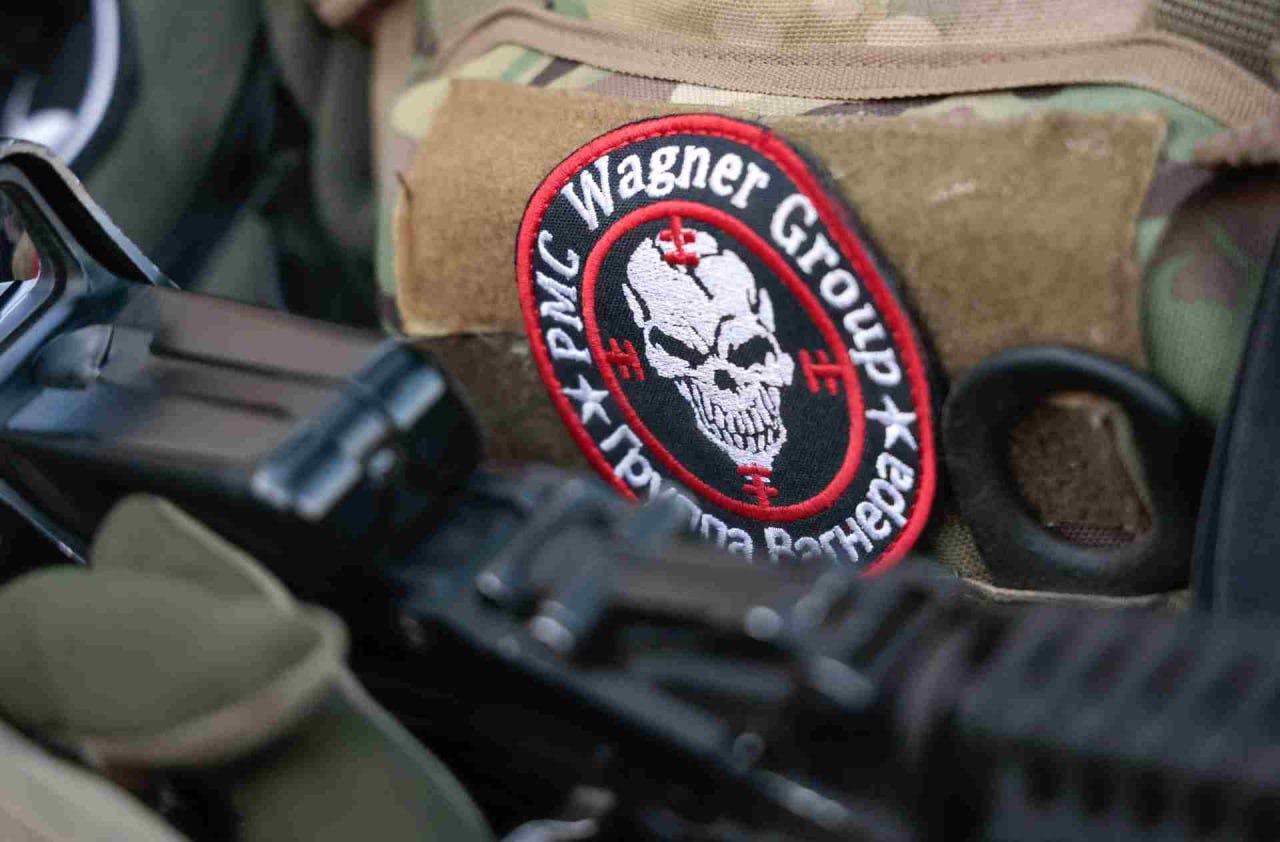Russian law does not recognize the existence of private military companies, including the Wagner Group, President Vladimir Putin told the newspaper Kommersant on July 13.
While attending a technology fair in Moscow, Putin was asked whether Wagner will continue operating as a combat formation.
“Well, PMC Wagner does not exist,” Putin told the Kommersant correspondent. “We don’t have a law on private military companies. So it simply doesn’t exist.”
“The group exists, but legally it does not,” the president clarified. “It’s a separate issue, related to legalization, that needs to be taken up by the State Duma and the government. A complicated question.”
Led by their chief Yevgeny Prigozhin, Wagner fighters staged a mutiny on June 23 and attempted to advance towards Moscow. The mutiny ended the very next day, June 24, with an agreement brokered by Belarusian President Alexander Lukashenko. Under the agreement, many of the group fighters signed contracts with the Russian Ministry of Defense and the rest left for Belarus.
Earlier this week, Kremlin spokesman Dmitry Peskov confirmed that Putin had met with 35 members of Wagner on June 29, several days after the group engaged in an armed rebellion. Putin was asked about the meeting.
“I don’t have a version,” the Russian president replied. “You or NATO may have a version. I have what actually happened.”
According to Putin, he wanted to meet with Wagner commanders who had fought honorably, more than with Prigozhin, though he was present as well.
“At the meeting I gave an assessment of what they did on the battlefield, and what they did during the events of June 24,” Putin said. “Third, I showed them the possible variants of how they could continue their service, including in combat. That is all.”
Putin added that he offered the men gathered at the Kremlin to continue their military service under the same commander they had served with for the past 16 months, known by his call sign “Grayhair”. While many of them nodded, Prigozhin spoke up on their behalf and said they did not agree.
In a related development, the Russian MoD announced on July 12 that Wagner had surrendered more than 2,000 pieces of military hardware to the military. The ministry said in a statement that the transfer process is going “according to plan” and is nearing completion.
The hardware handed over by Wagner included hundreds of heavy weaponry pieces, including main battle tanks of various types, multiple rocket launcher systems, self-propelled and towed artillery, anti-aircraft systems, and other combat vehicles.
Dozens of combat vehicles transferred by Wagner “have never been used in a combat environment,” the ministry noted in its statement. The group also surrendered over 2,500 tons of ammunition of different types as well as around 20,000 firearms.
The equipment is currently being transferred to rear field sites for maintenance, the ministry said, adding that it will be transferred to Russian military units for its “intended use”.
The crisis provoked by Wagner has clearly come to an end. The group’s presence in Russia will likely dissolve in the near future as its fighters sign contracts with the Russian MoD, leave to Belarus or simply return to their civilian lives.
MORE ON THIS TOPIC:


